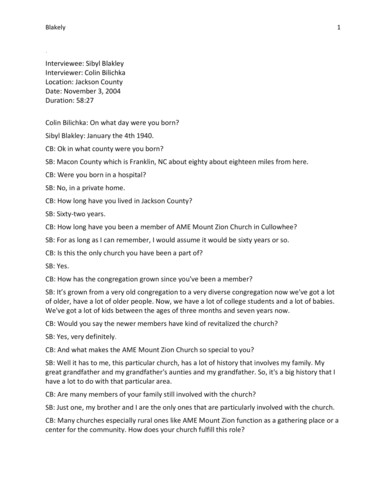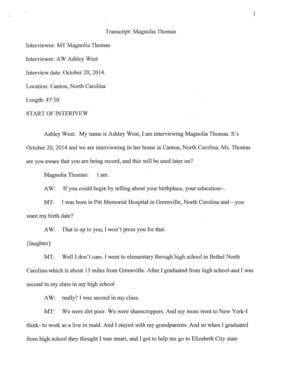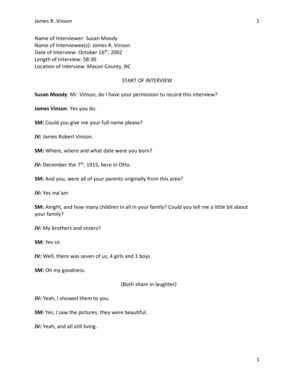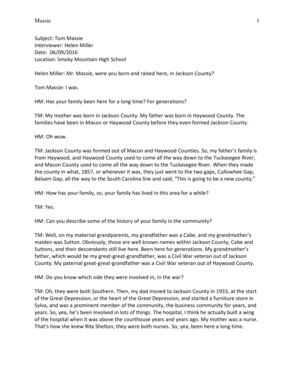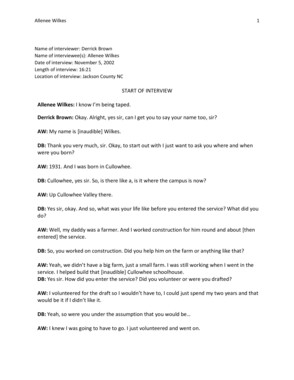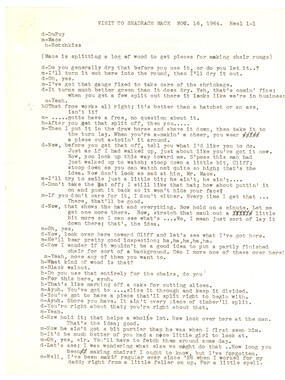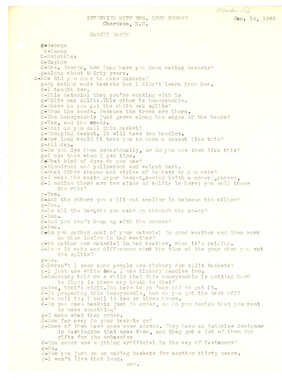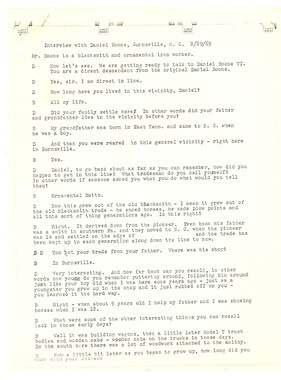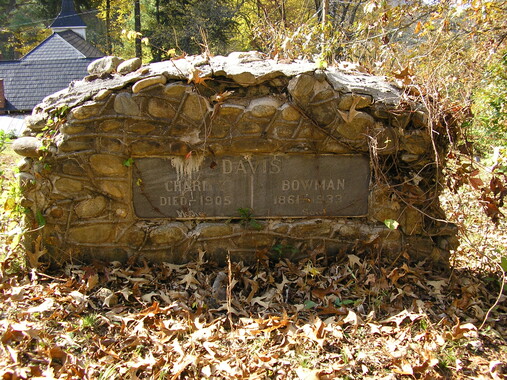Western Carolina University (20)
View all
- Canton Champion Fibre Company (2308)
- Cherokee Traditions (293)
- Civil War in Southern Appalachia (165)
- Craft Revival (1942)
- Great Smoky Mountains - A Park for America (2767)
- Highlights from Western Carolina University (430)
- Horace Kephart (941)
- Journeys Through Jackson (154)
- LGBTQIA+ Archive of Jackson County (26)
- Oral Histories of Western North Carolina (314)
- Picturing Appalachia (6772)
- Stories of Mountain Folk (413)
- Travel Western North Carolina (160)
- Western Carolina University Fine Art Museum Vitreograph Collection (129)
- Western Carolina University Herbarium (92)
- Western Carolina University: Making Memories (708)
- Western Carolina University Publications (2283)
- Western Carolina University Restricted Electronic Theses and Dissertations (146)
- Western North Carolina Regional Maps (71)
- World War II in Southern Appalachia (131)
University of North Carolina Asheville (6)
View all
- Allanstand Cottage Industries (62)
- Appalachian National Park Association (53)
- Bennett, Kelly, 1890-1974 (1388)
- Berry, Walter (76)
- Brasstown Carvers (40)
- Carver, George Washington, 1864?-1943 (26)
- Cathey, Joseph, 1803-1874 (1)
- Champion Fibre Company (233)
- Champion Paper and Fibre Company (297)
- Cherokee Indian Fair Association (16)
- Cherokee Language Program (22)
- Crowe, Amanda (40)
- Edmonston, Thomas Benton, 1842-1907 (7)
- Ensley, A. L. (Abraham Lincoln), 1865-1948 (275)
- Fromer, Irving Rhodes, 1913-1994 (70)
- George Butz (BFS 1907) (46)
- Goodrich, Frances Louisa (120)
- Grant, George Alexander, 1891-1964 (96)
- Heard, Marian Gladys (60)
- Kephart, Calvin, 1883-1969 (15)
- Kephart, Horace, 1862-1931 (313)
- Kephart, Laura, 1862-1954 (39)
- Laney, Gideon Thomas, 1889-1976 (439)
- Masa, George, 1881-1933 (61)
- McElhinney, William Julian, 1896-1953 (44)
- Niggli, Josephina, 1910-1983 (10)
- North Carolina Park Commission (105)
- Osborne, Kezia Stradley (9)
- Owens, Samuel Robert, 1918-1995 (11)
- Penland Weavers and Potters (36)
- Roberts, Vivienne (15)
- Roth, Albert, 1890-1974 (142)
- Schenck, Carl Alwin, 1868-1955 (1)
- Sherrill's Photography Studio (2565)
- Southern Highland Handicraft Guild (127)
- Southern Highlanders, Inc. (71)
- Stalcup, Jesse Bryson (46)
- Stearns, I. K. (213)
- Thompson, James Edward, 1880-1976 (226)
- United States. Indian Arts and Crafts Board (130)
- USFS (683)
- Vance, Zebulon Baird, 1830-1894 (1)
- Weaver, Zebulon, 1872-1948 (58)
- Western Carolina College (230)
- Western Carolina Teachers College (282)
- Western Carolina University (1794)
- Western Carolina University. Mountain Heritage Center (18)
- Whitman, Walt, 1819-1892 (10)
- Wilburn, Hiram Coleman, 1880-1967 (73)
- Williams, Isadora (3)
- Cain, Doreyl Ammons (0)
- Crittenden, Lorraine (0)
- Rhodes, Judy (0)
- Smith, Edward Clark (0)
- Appalachian Region, Southern (2399)
- Asheville (N.C.) (1917)
- Avery County (N.C.) (26)
- Blount County (Tenn.) (161)
- Buncombe County (N.C.) (1671)
- Cherokee County (N.C.) (283)
- Clay County (N.C.) (555)
- Graham County (N.C.) (233)
- Great Smoky Mountains National Park (N.C. and Tenn.) (510)
- Haywood County (N.C.) (3522)
- Henderson County (N.C.) (70)
- Jackson County (N.C.) (4692)
- Knox County (Tenn.) (25)
- Knoxville (Tenn.) (12)
- Lake Santeetlah (N.C.) (10)
- Macon County (N.C.) (420)
- Madison County (N.C.) (211)
- McDowell County (N.C.) (39)
- Mitchell County (N.C.) (132)
- Polk County (N.C.) (35)
- Qualla Boundary (981)
- Rutherford County (N.C.) (76)
- Swain County (N.C.) (2113)
- Transylvania County (N.C.) (247)
- Watauga County (N.C.) (12)
- Waynesville (N.C.) (73)
- Yancey County (N.C.) (72)
- Aerial Photographs (3)
- Aerial Views (60)
- Albums (books) (4)
- Articles (1)
- Artifacts (object Genre) (228)
- Bibliographies (1)
- Biography (general Genre) (2)
- Cards (information Artifacts) (38)
- Clippings (information Artifacts) (191)
- Crafts (art Genres) (622)
- Depictions (visual Works) (21)
- Design Drawings (1)
- Drawings (visual Works) (184)
- Envelopes (73)
- Facsimiles (reproductions) (1)
- Fiction (general Genre) (4)
- Financial Records (12)
- Fliers (printed Matter) (67)
- Glass Plate Negatives (381)
- Guidebooks (2)
- Internegatives (10)
- Interviews (812)
- Land Surveys (102)
- Letters (correspondence) (1013)
- Manuscripts (documents) (619)
- Maps (documents) (177)
- Memorandums (25)
- Minutes (administrative Records) (59)
- Negatives (photographs) (5835)
- Newsletters (1285)
- Newspapers (2)
- Occupation Currency (1)
- Paintings (visual Works) (1)
- Pen And Ink Drawings (1)
- Periodicals (193)
- Personal Narratives (10)
- Photographs (12976)
- Plans (maps) (1)
- Poetry (7)
- Portraits (1960)
- Postcards (329)
- Programs (documents) (151)
- Publications (documents) (2237)
- Questionnaires (65)
- Scrapbooks (282)
- Sheet Music (2)
- Slides (photographs) (402)
- Songs (musical Compositions) (2)
- Sound Recordings (796)
- Specimens (92)
- Speeches (documents) (15)
- Tintypes (photographs) (8)
- Transcripts (322)
- Video Recordings (physical Artifacts) (23)
- Vitreographs (129)
- Text Messages (0)
- A.L. Ensley Collection (275)
- Appalachian Industrial School Records (7)
- Appalachian National Park Association Records (336)
- Axley-Meroney Collection (2)
- Bayard Wootten Photograph Collection (20)
- Bethel Rural Community Organization Collection (7)
- Blumer Collection (5)
- C.W. Slagle Collection (20)
- Canton Area Historical Museum (2110)
- Carlos C. Campbell Collection (282)
- Cataloochee History Project (65)
- Cherokee Studies Collection (4)
- Daisy Dame Photograph Album (5)
- Daniel Boone VI Collection (1)
- Doris Ulmann Photograph Collection (112)
- Elizabeth H. Lasley Collection (1)
- Elizabeth Woolworth Szold Fleharty Collection (4)
- Frank Fry Collection (95)
- George Masa Collection (173)
- Gideon Laney Collection (452)
- Hazel Scarborough Collection (2)
- Hiram C. Wilburn Papers (28)
- Historic Photographs Collection (236)
- Horace Kephart Collection (861)
- Humbard Collection (33)
- Hunter and Weaver Families Collection (1)
- I. D. Blumenthal Collection (4)
- Isadora Williams Collection (4)
- Jesse Bryson Stalcup Collection (47)
- Jim Thompson Collection (224)
- John B. Battle Collection (7)
- John C. Campbell Folk School Records (80)
- John Parris Collection (6)
- Judaculla Rock project (2)
- Kelly Bennett Collection (1407)
- Love Family Papers (11)
- Major Wiley Parris Civil War Letters (3)
- Map Collection (12)
- McFee-Misemer Civil War Letters (34)
- Mountain Heritage Center Collection (4)
- Norburn - Robertson - Thomson Families Collection (44)
- Pauline Hood Collection (7)
- Pre-Guild Collection (2)
- Qualla Arts and Crafts Mutual Collection (12)
- R.A. Romanes Collection (681)
- Rosser H. Taylor Collection (1)
- Samuel Robert Owens Collection (94)
- Sara Madison Collection (144)
- Sherrill Studio Photo Collection (2558)
- Smoky Mountains Hiking Club Collection (616)
- Stories of Mountain Folk - Radio Programs (374)
- The Reporter, Western Carolina University (510)
- Venoy and Elizabeth Reed Collection (16)
- WCU Gender and Sexuality Oral History Project (32)
- WCU Mountain Heritage Center Oral Histories (25)
- WCU Oral History Collection - Mountain People, Mountain Lives (71)
- WCU Students Newspapers Collection (1744)
- Western North Carolina Tomorrow Black Oral History Project (69)
- William Williams Stringfield Collection (2)
- Zebulon Weaver Collection (109)
- African Americans (390)
- Appalachian Trail (35)
- Artisans (521)
- Cherokee art (84)
- Cherokee artists -- North Carolina (10)
- Cherokee language (21)
- Cherokee pottery (101)
- Cherokee women (208)
- Church buildings (167)
- Civilian Conservation Corps (U.S.) (110)
- College student newspapers and periodicals (1830)
- Dams (103)
- Dance (1023)
- Education (222)
- Floods (61)
- Folk music (1015)
- Forced removal, 1813-1903 (2)
- Forest conservation (220)
- Forests and forestry (1058)
- Gender nonconformity (4)
- Great Smoky Mountains National Park (N.C. and Tenn.) (181)
- Hunting (38)
- Landscape photography (10)
- Logging (103)
- Maps (84)
- Mines and mineral resources (8)
- North Carolina -- Maps (18)
- Paper industry (38)
- Postcards (255)
- Pottery (135)
- Railroad trains (71)
- Rural electrification -- North Carolina, Western (3)
- School integration -- Southern States (2)
- Segregation -- North Carolina, Western (5)
- Slavery (5)
- Sports (452)
- Storytelling (245)
- Waterfalls -- Great Smoky Mountains (N.C. and Tenn.) (66)
- Weaving -- Appalachian Region, Southern (280)
- Wood-carving -- Appalachian Region, Southern (328)
- World War, 1939-1945 (173)
Interview with Sibyl Blakley
Item
Item’s are ‘child’ level descriptions to ‘parent’ objects, (e.g. one page of a whole book).
-
-
Blakely 1 . Interviewee: Sibyl Blakley Interviewer: Colin Bilichka Location: Jackson County Date: November 3rd, 2004 Duration: 58:27 Colin Bilichka: On what day were you born? Sibyl Blakley: January the 4th 1940. CB: Ok in what county were you born? SB: Macon County which is Franklin, NC about eighty about eighteen miles from here. CB: Were you born in a hospital? SB: No, in a private home. CB: How long have you lived in Jackson County? SB: Sixty-two years. CB: How long have you been a member of AME Mount Zion Church in Cullowhee? SB: For as long as I can remember, I would assume it would be sixty years or so. CB: Is this the only church you have been a part of? SB: Yes. CB: How has the congregation grown since you've been a member? SB: It’s grown from a very old congregation to a very diverse congregation now we've got a lot of older, have a lot of older people. Now, we have a lot of college students and a lot of babies. We've got a lot of kids between the ages of three months and seven years now. CB: Would you say the newer members have kind of revitalized the church? SB: Yes, very definitely. CB: And what makes the AME Mount Zion Church so special to you? SB: Well it has to me, this particular church, has a lot of history that involves my family. My great grandfather and my grandfather's aunties and my grandfather. So, it's a big history that I have a lot to do with that particular area. CB: Are many members of your family still involved with the church? SB: Just one, my brother and I are the only ones that are particularly involved with the church. CB: Many churches especially rural ones like AME Mount Zion function as a gathering place or a center for the community. How does your church fulfill this role? Blakely 2 SB: It brings the community together, it encourages the you know it encourages the development in the community, it encourages the community itself as to be a community. CB: So would you say that the church transcends its role as just a Sunday house of worship? SB: Yes it does. CB: Do you perform, or have you performed any special roles in the church? SB: Well, I've a been a church secretary, I was on the financial board, and I was class leader, all of those that I am no longer on since I've had my stroke. CB: Does the church participate or lead any community programs? SB: It participates in the community programs. We've had one particular program that we participate with Webster, Webster Baptist and it, one Sunday in June when we have an art council which will bring artists like, retailing artists like Marion Anderson and different people. Coming up, you know, redoing their music and redoing their history and everything on it and we visited, we visit back and forth between the churches and the historical churches, to learn about other churches. CB: And how would you say these types of programs affect your community? SB: Well, it brings the community closer together. CB: And are these open to the public? SB: Yes, very definitely, yes. They are advertised in the newspaper earlier. CB: Were there any civil rights movements or discussions held at your church? SB: Not that I know of, not that I know of, and with this that I know about the church now I would say I doubt it. CB: How did the civil rights movement affect the members of your congregations that were living in Jackson County during the time here? Do you anything about that? SB: Civil rights movement itself? The civil rights movement for one thing, the schools were integrated, the kids all the kids in the community started to go to the same school, and it had affected my dad, my dad was the Principal at the last African American school here and he had to find a job someplace else, and he went to Job Corp after that. So that's how it affected ..... CB: And I know that you told me a story about your trip to New Orleans, would you mind speaking about that again? When you were a little girl and you went to New Orleans, and how that affected you? SB: I'll go ahead and tell it, but I'm not sure that this is pertinent to this particular discussion, but anyway. I grew up on, grew up in the neighborhood that I am in now and I was with a lot of Caucasians. But when I went to New Orleans I learned a lot about what life was in the outside world because I had never been exposed to it here in my hometown and one of the girls that I grew up with and I were discussing it and she was talking about it was the same thing with her when she went to Tennessee. She lives outside of Nashville, and she found out all the discrimination and all the different things that she'd heard. So, I know now it wasn't just me, it Blakely 3 was everybody in this area was sheltered. We didn't, we just didn't, weren't exposed to the cruelties of discrimination or anything. Except, we got no pay, you know, had no pay, we worked, you know, our mothers worked as domestics and my father was a teacher and I had read the other day, that they were talking about how the teachers were paid. The white men were paid one salary. The white women was paid a salary $10 lower than that one, and the black women were paid $10 lower than that which would be $20 lower and the black men, of course, was on the bottom. That wasn't exactly discrimination, but the fact of the matter is that they wanted this black family kept down because if they weren't making the same salary they were kept down, because the husband couldn't support his family right. Now that wasn't, it wasn't discrimination it was very quiet around here. We didn't know about all of this. CB: How old were you when you went to New Orleans? SB: Twenty. CB: And what kind of l guess activities did you participate in there? SB: In New Orleans, I was on the Methodist, we went to Methodist Church Conferences and maybe I shouldn't tell about all the things I did participate in but, anyway, with the Methodist Church Conferences but I met Fats Domino while I was down there and we would slip off and manage to hang out in this little club, turns out it was his girlfriend’s club and we threatened to tell on him and he threatened to tell on us and tell the school and call the school because he saw, happened to see the school bus parked out in the parking lot. So, we'd go home. CB: And did you participate in any like civil rights movements .... SB: No, no, no other than go in to try to find out whether we could eat at the counter and see what would they serve us or not, at the, you know, Woolworth's and some of the restraints, I mean some of the five and ten cents store snack bars and things, because I would go one day, we'd go with the African Americans that I knew and they wouldn't serve us, they'd throw us out. Go with these Indians and they'd serve you. Sometimes I ate at that particular bar and the other thing I ate it there, but they never did catch on before we finally decided to stop doing it before we got caught again. CB: So how did that affect your life when you got back to North Carolina was it kind of, was it different? Seeing .... SB: Oh I appreciated it when I got back home, I really did because it was, you know, it was, seemed to me, it was so much safer here than it was there. CB: So you feel more accepted in North Carolina would you say that? SB: Yes, I guess you'd say that I'm on my own turf and I really do appreciate it. CB: Does your congregation participate in any events or functions with other churches in your community? SB: I thought you asked that before? CB: That was with the community as a whole this is just with the churches . ... Blakely 4 SB: Oh the community as a whole, very few just with the different communities we do have a sunrise service with Cullowhee Baptist and we have programs with the Cullowhee Methodist, United Methodist in Cullowhee. CB: And do their congregations come to visit you or do you go visit them or? SB: Oh both ways, most of the time we are invited to go visit, go with them the sunrise service is usually at Cullowhee Baptist. CB: How does that feel when you have a whole different congregation in your church is that? SB: No, its fine, its fine. It’s kind of funny sometimes because our services are so long. At fifty-five minutes you start hearing rumblings. Sliding around on the seats [Laugh] and everything but they, you know, are used to getting up in fifty-five minutes right in an hour and the services are over. Our services are long. CB: About how long do your services usually run? SB: Hmmm we go in at 11 :00 and we are lucky if we get out at 1 :30. CB: Does that vary on, have you had other pastors that have shorter time and some have longer or? SB: Uhh Huh Yes, yes. CB: In the recent years women have played a larger role in the church what do you think about... SB: I'll make a correction to that not in recent years AME Zion took out of their discipline in 1897, 1879 really they took male out of their discipline at that particular time and had female ministers then. CB: So how did you feel about having a female pastor? SB: How could you feel anything different about it when that is what you've been exposed to all of your life. CB: And so she was received well by the whole congregation? SB: Yes, very… well, actually when. I would have gone back home if I'd been her, because our other pastor had been reassigned to a church in Tennessee which was closer to their home and we cried like crazy when he left. And now she's sittin' there, the new pastor is sittin' there. If I'd been the new pastor I'd been back in Asheville by the next service because these people up there crying because this man’s leaving. I would know I didn't have a place in that right. But yeah, she stuck with it six years now. CB: Was this your first female pastor? SB: No, no, no, no. We've had quite a few let me think .... [inaudible], Jones [Scurry] I know of five that I can just sit down here and name right now without having to ... Five. CB: So there have been five just in your… SB: Five different ministers that I can think of right now. Blakely 5 CB: Ok, so you guys are at the forefront of the women's movement? SB: Well yes, of course, and we are looking for also, we are looking and hoping one day to have a like a AME Zion I mean yeah AME, have a women bishop sometime soon. Cause I think one came to be a bishop this year she just didn't win. AME had one last year. CB: So what is your earliest childhood memory you have of the church and your life in Jackson County? SB: Earliest? [Laughs] Running from a rooster and my neighbors bailing me out to keep the rooster for, I don't know whether I was picking up with picking on the rooster or what. But, my house used to be down in that hole down there [points] and the road came all the way around and they came around the curve they stopped and listened to see if I was out there running from this rooster and the neighbors, of course, my cousin and I were the only black ones on that particular road, you know, and the other neighbors would come through [Laughs] and they were always looking out to see if l was running from that rooster again. In my memory that's the biggest rooster I've ever seen but, you know, when I was two years old it couldn't be very big. CB: So you were saying that you and your cousin were the only black people around did you get along well with the white children? Was it …? SB: You know the things that I remember, the bad things I remember were from my own race, my own race, I knew nothing, no problems with any whites that I know of anyway. I remember different things happened that were kind of funny but, but the real bad thing, I mean the bad things the name calling and everything happened to have been from my own race. The fights I had were, you know, I had two fights my father wasn't impressed with, you know, if you're a teacher you don't want your kids to be fighting in school. Well, I did I had two. CB: So would you say your father was a strict disciplinarian? Or… SB: Strict disciplinarian no, not really. Just a little sharper than some of the other people, I think because he caught up with my antics long before I got to where I was, you know, thought I had him down pat, but anyways .... CB: And what's the earliest childhood memory of your life in the church? SB: In the church, let me think, well the first… I mean the memories that I have now and I can't figure out how we got there but we were on Caney Fork all of our church members were on Caney Fork to a tent revival. How we got up there I do not know because except for the members of our church we were the only black people there and I have no idea how we got up there, but anyways. The first tent revival I had ever been to and the only one I had ever been to I don't remember anything else about it. CB: The women of your church opened a private school in the late 1880s called the Allen School. SB: Yes. CB: Can you tell us something about that? Blakely 6 SB: Other than my grandmother graduated back in 1904. CB: And did she tell you how the school… SB: No I didn't even know it until I found some papers that that's where she graduated from. She didn't talk very much, none of them talked very much about anything, you know. CB: Did you know if she would probably received a better education there as opposed to the public schools in the area? SB: Well I don't know what the schools were in the Black Mountain that's where she grew up. But, I do know that here in Jackson County the reason that people were going to private school is the grades just went to tenth grade and in order to get a better education you went some place else. CB: And what were the public schools like when you attended it? SB: I guess good, good we had school, we had school books, we had teachers. The school nurse would come by and give us shots and everything like that. Only after I grew up did I know that there was that much of a difference. We had oiled floors, we had a pot belly stoves. We had books that usually had seven names in them when we got them but as far as, you know, we had a school, we had school buses, real school buses. CB: Were the schools you attended were they all black, were they integrated? SB: No they were all black schools until 1957 and I graduated from that school in 1957. That was the only black school. CB: And you told me a story about your first public library experience. Would you care to share that again? SB: Going to the library to check out a book and they watched me the whole time I was in there like they had to find out whether I was capable of checking out the book or not, I don't know what that was about, but anyway that made me very uncomfortable. CB: That was your first? SB: First time to the public library. CB: How old were you? SB: Eighteen. CB: As you're aware WCU bought the church and the graveyard and relocated it in the 1920s and as you were telling me before can you just explain, you know, how that situation, how that made you guys feel? SB: Well, it didn't… I really don't know how it really made them feel because when I found out about it, you know, I thought, you know, how they actually did it, you know, and everything like that and the reason after I read it in the, you know, minutes of the library archives I wondered why our forefathers didn't ever tell us anything about any of this, you know. But, the reason they wanted it moved was they said they felt uncomfortable about having blacks near a public institution. But they bought the property, bought the church so it could be razed, for $3,200 Blakely 7 and they had seventy-six graves that needed to be moved and they paid ‘em $1,000. They were paying ‘em a dollar a day to move these. And they found out who was, you know, somebody in the group was getting paid more than they. Probably the guys that were moving the I don't know moving the, building the boxes maybe I don't know? Anyway, somebody in the group was getting paid more than that so they had a strike. They decided they weren't going to dig for a dollar a day. [Inaudible] moving all these graves for a dollar a day. CB: A dollar a day was probably back in that time even not enough to support a family. SB: No, they didn't plan for anybody to support a family with it, but anyway. CB: Does anyone form the congregation still have hard feelings to this day about that event? SB: I don't really know too much about what they feel anymore because everybody's so guarded about what they think about everything. We just know what we were told and we're lucky to have one… I mean part of the family members the Rogers' their dad had told them about a lot of this stuff. I read but my family didn't tell us anything about my grandparents told me nothing about all these things I read it, read it and, you know, from the archives and read it in the history books here in Jackson County. CB: So, that was your first knowledge of it? SB: Uhh huh CB: Was actually from reading it? SB: Yeah, actually reading it. CB: So, it’s never been brought up? SB: Unn Unhh, [Inaudible] you know we're celebrating our 113th Church Anniversary and you have to go revisit every year to be able to understand why we are proud to be celebrating cause these were former slaves that decided they wanted a church and they built ‘em a church, you know. My grandfather gave them the property or sold them the property I'm not sure what, but anyway, they built ‘em a church. They had this church for twenty some years before they decided they needed that space, that they were uncomfortable about us being there, so they teared the church down and moved all the graves and built another church across the street. CB: So your grandfather was kind of the man behind the church? SB: Well, actually his property was the one under the church I guess and his daughter's property was where the other church is and the top cemetery up there was his two daughter's property. So, they gave that to the church for the cemetery, the top part of the cemetery. CB: Have you ever worked for Western Carolina University? SB: Yes, I worked at the cafeteria, I worked in housekeeping, and I worked at the, you know where the infirmary is, I guess as a L.P.N. I guess when I worked as a nurse. CB: And how would you judge these jobs? Were they good jobs? SB: Yes, they were good jobs. Well the cafeteria was for the birds. Yes, it was hard to work there. I've worked in restaurants since then and I realized that they weren't as bad as that Blakely 8 particular one. Working in the dorms that was fine. I liked that. I've had some good jobs up there. CB: How do you feel that the church has evolved just overall? SB: It is a lot less segregated now than it has been and I mean not segregated by race, I'm talking about by community… Churches that I know have usually been segregated, you know, this community here goes to this particular church and there is usually no outsiders in that church, you know, there is no outreach ministry, you know, you don't bring new people in. Very seldom will you have somebody new there unless they are visiting somebody that's at the church right. But as far as I know that's the… what was the question? CB: Just how the church evolved? SB: Oh yeah, well its now an outreach ministry its out in the community, we've had students from Job Corp, we have students from Western, we have people from just out in the community in general just coming in so, you know, we have a lot of different things. In the last part in the back part of our church was built by the Tuckasegee Baptist, you know, that's the white Baptist churches in this area, they came in as a group and decided they help us finish building our work we had started. And now we've had quite a few people come in, you know, and do different things but anyway. We've been to, like I said, Webster Methodist, Webster Baptist and different things, for different things. But, it helps to be you know in touch with people in the community. CB: So, you do interact more with other churches? SB: Yeah, definitely. CB: And would you say this region of the south has a small-town mentality? That you said when you left New Orleans and you saw a whole different side of it? SB: How do you say that? How do you go? No, this county does not have a small town mentality simply because we've had a lot of people come in from different areas that's decided to bring, decided to rebuild the community to the way they would like for it to have been everywhere they were living, in Miami or wherever, and they come here to try to inject all their ideas so it’s not a small town mentality. It is revised mentality. CB: So would you say that people resist the changes that…? SB: Definitely, definitely, change is a dirty word a lot of them, you know, it’s not there. What's funny when they wanted to build Wal-Mart, oh that was the fight of the century nobody wanted Wal-Mart, but now they see now that went ahead and let Wal-Mart come in that's where everybody goes. Wal-Mart. You don't change around here. CB: So would the members of the church actually get together and try to resist the building of things like Wal-Mart? Or was that .... SB: No, well it wasn't ever addressed as far as I know. I don't ever remember it being addressed, there were some things that have been addressed in church, but, you know, there was political issues at the time its discussed depending on how bold the pastor is at the time of the Blakely 9 discussion, we've had some pastors that wouldn't touch it with a ten foot pole, you know, we've got some that will speak out about a lot of things. CB: And how would you say this pastor you have now is different from the other pastors you've had? SB: She's a teaching preacher. And she can really, you know, she's experienced a lot in her life and she could tell you, you know, she matches… is a good match with the college students, you know, because especially young ladies. You know, as she says don't try to snow me because I've been there that kind of, she gets into it, she really is. CB: So, she has more of a teaching style does that relate better with you since your father was a teacher? SB: Yes, no I mean I don't know, it's a funny thing as many teachers as we've had in our family. I was one that didn't want to be anywhere near it, so I don't know whether that, but I do like her style, she'll get it over to you one way or the other. CB: So how long do you think it took for her to get accepted, you said that everyone was crying and stuff when the old pastor left, did it take her a long? SB: Well, she went in the 1st year and then it blew up the 2nd year till we got it. [Laughs] She's, you know, used to having everything in control. Like I said change is a dirty word they weren't gonna let things change too much, but other than that's all just I can say. CB: The reason we are doing this is to try and help AME Mount Zion record their history so it can be passed down to future generations. What else do you know about the history of the church that can help us relate this message? SB: The history of the church itself? CB: Yes ma'am SB: The fact that it survived 113 years in the midst of all the struggles we've been through over the years because there are other AME Zion churches in Macon County or the lack of AME Zion churches anywhere beyond Jackson County they've been, you know, closed in Macon County, and the different counties all back west of here, and I am very, very proud of our church because as hard as it was that you look back over what the salary what people earned and everything they kept this church going and the pride in their church themselves kept them going. CB: So is there a lot of interaction between the other AME Zion Churches? SB: Oh constantly, we have quarterly conferences and we have, that's where we meet with the presiding elder or he comes over brings us up to date on things that are happening within the church. OK, that's every quarter. OK then we have our district church meeting which is in September and then we have our annual conference which is in October which is where all the churches meets and different things, but we have, you know, different meetings and different things, different organizations all through the district and everything. But we interact with each other’s churches, interact with each other. Blakely 10 CB: So, how many members are there in the church, in your congregation? SB: When Reverend Wilder came in we had eighteen members and I think maybe we have like thirty-five or thirty-six now. CB: I guess it’s been growing? SB: Yeah it’s been growing definitely. CB: And do you see it getting even bigger? SB: Possibly, yes. Cause every time I go back to church I see somebody new. So, I would say yes. CB: So, it' s a place where the big college kids can come and feel comfortable now? SB: Yes. CB: And has it always been like that with the school that you've guys had that relationship where students could come easily? SB: Sometimes I've thought we've had college students over there before, but I started meeting kids and one girl I met I was wondering, I was talking to her and she'd been there five years and she said she didn't know that there was any African American churches in the area. And I said how is that possible? She said I just never heard that there were any in the area. We were always told about United Methodist, and Cullowhee Baptist, and Presbyterian, and Episcopalian churches we never knew that church was there. I don't know. CB: How many students would you say on a given Sunday there are there now? SB: Let me think, let me think [Inaudible] twenty. CB: Ok, so that's a big change from five years ago when there wasn't any now there is twenty. SB: Yes, yes, yes cause there is twelve or so in the choir itself they're all students. CB: Is that a big choir is there? SB: Well for the students, yeah, for us to not have a choir [Laughs] their choir, you know, its… CB: How do you try to reach students? Is it just like a word of mouth thing? Or how do you guys…? SB: Well she met with the students on campus, you know, she would just go up to some of the things that we would go to, different things that were happening on campus, you know, they would have different programs and different things and we'd go up there and get students that way. That's she'd just met ‘em herself, you know, through one student she'd meet a, you know, other student and everything and they show up at Bible study and everything. CB: Do they help contribute to ideas in the church and community involvement? SB: Definitely, yes, oh yes. CB: Back to your work experience, what kind of jobs did you have when you were growing up? SB: Domestic jobs, cleaning houses and things like that. Working in restaurants, nursing homes. CB: Were these all in the area or did you have to commute to work? Blakely 11 SB: Most of the restaurant jobs, I worked in restaurants have been in Cherokee, I worked twelve years in Cherokee. CB: I remember you telling me the story about how you went to go see the play in Franklin? SB: Oh yeah, up in Highlands. Oh yes, my mother was so embarrassed over that one. We went to Highlands and we had seen, been out and riding around a sign that says Summer Theater, called back home to tell my momma that we were going to Summer Theater. She said oh no you are not you come home you got one hour to bring that car to me back home. Se we fly off the mountain, let people out as we come to Sylva. When I got home I could still not understand why she didn't want me up there. She said well they wouldn't have let you in in the first place. And I was probably in my twenties when it finally hit me what she was trying to tell me. I did not understand it, what she was trying to tell me and I know for sure they would not have let me in. CB: So, the racism that you experienced you think it was something that was never really talked about it was just understood? SB: It was understood as they say they knew their place, you know, you knew your place, you knew where you were supposed to be. When you went into a restaurant you would order, you know, you knew you were expected to get a bag they weren't going to ask you to sit down. And, when you'd ride on the buses you knew you were supposed to sit in the back seats. If there was anybody else, you know, somebody else that needed a seat, you had a seat, you were supposed to give it to them and things like that. CB: So, would you say Jackson County was more or less severe than the other places you've traveled to in your…? SB: Less severe. It actually got more undercurrent in later years. Things that we had never experienced and we had people that like I said, people that'd come in, you know, they were, it was different. CB: How would you say things are now or in more recent history, would you say things have gotten a lot better? SB: Let’s put it this way, it got worse before it got better. It’s getting a little better, you know, there is a lot of undercurrent a lot of things that happened that, if l had the money my kids would not have been in public schools around here. That's how bad it’s gotten. CB: Would you say, it’s like this throughout the south or… with the public schools? SB: I don't know what it’s like in the south. I know Jackson County is notorious for having all kinds of problems in the schools, but I don't know. I can't speak for other areas because I've lived here and I know. CB: Have you, do you think people get a preconceived notion of you before they meet you, have you ever been judged unfairly? SB: [laugh] I don't think we need to discuss this. I really don't. Blakely 12 CB: Yeah, it kind of ties into the small-town mentality where people think negative things before they get to know you. SB: There really is not a nice way to say this, so I'm gonna ignore the question [Laughs]. CB: It’s understood. Would you say that you are able to socialize with church members outside of church? Does that happen occasionally or? SB: Yes, oh definitely. CB: Is it through like Bible groups or? SB: No, its just on a personal basis [Inaudible]. CB: Would you say many of your lifelong friends are through the church? SB: Most of my lifelong friends were through school, cause we went through school together. [Inaudible] We kind of lost contact with each other, but those were my friends. CB: So, you've been part of the congregation for… since you could first remember, have any of the other people that have been there been a part of the congregation that long? SB: Longer. I guess you've probably met Ms. Allen, Ms. Louisa Allen, Louise Allen and her sister Hazel Whiteside I'd say they've probably been in the church for seventy some years and Ella Mae Rogers I would say she's probably been there sixty years. She’s from Haywood, I mean Swain County. CB: So, do you keep in contact them of any other day besides Sunday? SB: Oh yes, in fact my daughter's quite annoyed with me because I'm usually on the phone over there talking everyday. [Inaudible] We just sit over there and talk. CB: So, this kind of brings about the idea that this is more than a house of worship? SB: Yes it is, yes it is, and we interact with the college students. My little granddaughter's very talkative, but anyway, her trip to the circus was a college student came and got her to take her to the circus. [Inaudible] And she took her to the circus, but most of the kids were very intelligent, very pleasant, spirit filled kids, they are really nice, I say kids but they are not kids, definitely not kids they are real people, proud to know ‘em. CB: Many important events take place in the church too like weddings and .... SB: I guess my daughter, the last wedding that I remember in our church was my daughter that got married twenty-three years ago. CB: So, that was the last wedding? SB: That's the last one that I know of it was an actual wedding. CB: Do you keep in contact with former members that have moved or? SB: Well most of our former members [tape ends] CB: ................ talking about weddings. Blakely 13 SB: Well that wedding was my daughter was married there twenty-three years ago. December the 19th, 1981, I think, that's the last one I remember. The only one I've ever been to. CB: And what about funerals? SB: Oh, for a while I thought all of our members were gonna die on us. We had two members in one week and the third member was six months later and another one a year later there was two more members of our church passed. I thought all of them were gonna die. CB: And these were members that kind of grew up alongside you? SB: Yes, Yes. One of them was my cousin that was my age. She was like three months older than I was. She was the first one our of the group to die, and then there was a member that had moved from a Baptist congregation to our church and he died the next day and then one of our pastors died in December. The next year one of the trustees and the deacon the oldest member of the church. CB: Since you have been attending this church, how many members of your family have been in and out of the church? SB: My mom and dad, my brother [Inaudible]. CB: And your brother still attends? SB: Yes, and my kids of course were members there for a while. [Inaudible]. CB: Is it, Do people that have been a member do they come back, ever or do? SB: Oh yes they come back. We have college students that have been gone ten years or so that are back. In fact, we have a family I don't know what [Inaudible] does but anyway he was here and he graduated in the 1980s but anyway he's back with his wife and two daughters that are in the congregation now, but he's working at Western and he's back. We have a person over there Thadius Cunningham he attended Western [Inaudible] but he's back at our church. We've had quite a few of them turn and come back, you know, the Kappa's what is the Kappa' s, have their reunion here every year. CB: At the AME Mount Zion church? SB: Yes, they bring their minister, whatever, their own speaker and whatever. CB: And that happens every year? SB: Well it’s happened the last two or three years. CB: So, your church kind of opens up for other groups to have…? SB: Yes, oh yes. CB: Is there any other childhood stories that are relevant that deal with the church? Like Baptisms? SB: Mmmmm. That can turn interesting especially if you baptize ‘em in the river. I remember one baptism that was up there near the curve up there as you go around the river end, up in Blakely 14 there, needless to say I wasn't one of them because I was too scared of the water to do that [Laugh] so I chose to be sprinkled instead. CB: What was life like in your home when you were a child? SB: Interesting to say the least it was just a normal home. My mom managed to keep things together, my dad, my mom would sew and make all my clothes and she was always making up these new recipes, she would always trade recipes and things, trade books, they'd all the ladies who were reading true stories and true romances would take and trade the books back and forth, you know, get little bags and carry the bag to school and hand it to somebody, and they would [Inaudible] going to read it, [Inaudible] one would stay [Inaudible] of course you would always find new recipes in there and try those out and she was always doing that. CB: Were many of your parent’s friends that would trade back and forth with, were they members of the church too? SB: Yes, Yes. One of the ladies was Ms. Allen, that you met Ms. Louisa Allen, one of them was her mother; and they'd trade back and forth and the had come across the river in a boat, they brought a boat to come catch the bus, they had to come across in a boat. CB: To go to school they had to? [Laugh] SB: Yeah [laugh] they had to come across in a boat. CB: I never heard of that catching a boat to go to school. [Laugh] SB: They did [Laugh], yeah. CB: So, also probably your parents were friends with other members of the church was it kind of like a babysitter thing, like they could drop you off at their friends house? SB: No, no, no, no. It was if you got into trouble or if you did something you weren't supposed to do in spite the fact that their wasn't a telephone you believe your momma knew about it by the time you got home. [Laugh] I don't know how that happened but it happened several times. Oh yes, my momma was sittin' there waitin' on me when I come in, you did something, you did what? Yes, ok whose been by here? Not telling. CB: How do you think the schools are different now from when you attended public schools? SB: That's another one of those things I'll take the 5th on, you don't want to know about what I think about, like I said, if I had the money my kids would have been in private school rather than the Jackson County school system. CB: Is there any other things about AME Mount Zion Church that are special to you? The place, relationships or? SB: It’s family, it’s family it’s that spirit is definitely kept, it’s there, it’s been there, it's a family, you know, through all of it different things that have happened it’s still family. CB: So these people are always there to accept you? And give you advice? SB: Uh Huh, no matter what yes, and I can really say that cause this passed year I had a stroke, I had a stroke in October and my family was with me all of the time. Blakely 15 CB: Your church family? SB: My church family was there, the first night, the night, or the morning I had a stroke my pastor was there and my kids were there. I remember the bad days in the nursing home I'd look up at, of course, my day care family was there too when I worked at the day care center, Methodist Church down here, this adult daycare center I worked there. I looked up one of those bad days. I looked up at all the people from the day care center, so… CB: When other people are having problems everyone gets together and prays? SB: Uh huh, yes, definitely, yes. CB: How would you say Jackson County as a whole, where do you see it going? Do you see it? SB: I still believe in Jackson County it's a special place. But, there have been times this year when I've had my doubts about where it was going. But it looks like, you know, it’s improving, you know, we finally after fighting, trying to get property for our Department on Aging, that's where I work through them and Heritage Hills, we were trying to find housing for our senior citizens. In 2005 our building will be up we got [Inaudible] the DSS building [Inaudible] Behind that will be the Department on Aging and over there behind that will be the senior housing in Jackson County, went through a lot of red tape but we got it. Got it down and our county manager was with us for a change. CB: So was this done with other members of your church? Or was this…? SB: No, this was done through the Department on Aging. This was a community effort, this was through different pastors, and different departments, and their department heads, and everything. CB: Is anyone else from AME Mount Zion involved with the Department on Aging? SB: No, yes there's one more, no she's not involved with the Department on Aging, she works [Inaudible] there is one works in… with the legal system, and other one works with Alzheimer’s. CB: That's pretty much all of our time, is there anything else you would like to say? SB: No, not while the mike is on anyway.
Object
Object’s are ‘parent’ level descriptions to ‘children’ items, (e.g. a book with pages).
-
Colin Bilichka interviews Sibyl Blakley on November 3, 2004 for the Western North Carolina Oral History Project. Born in 1940, Blakley has been a member of the AME Mount Zion Church in Cullowhee for as long as she can remember. She speaks about the history of the church, its role in the community, and how it has changed over time. She relays what she knows about the relocation of the church and cemetery to make room for the growing Western Carolina Teachers College. She talks about various jobs she has had at Western Carolina University and discusses her experience going to school and growing up as an African American person in Jackson County.
-
